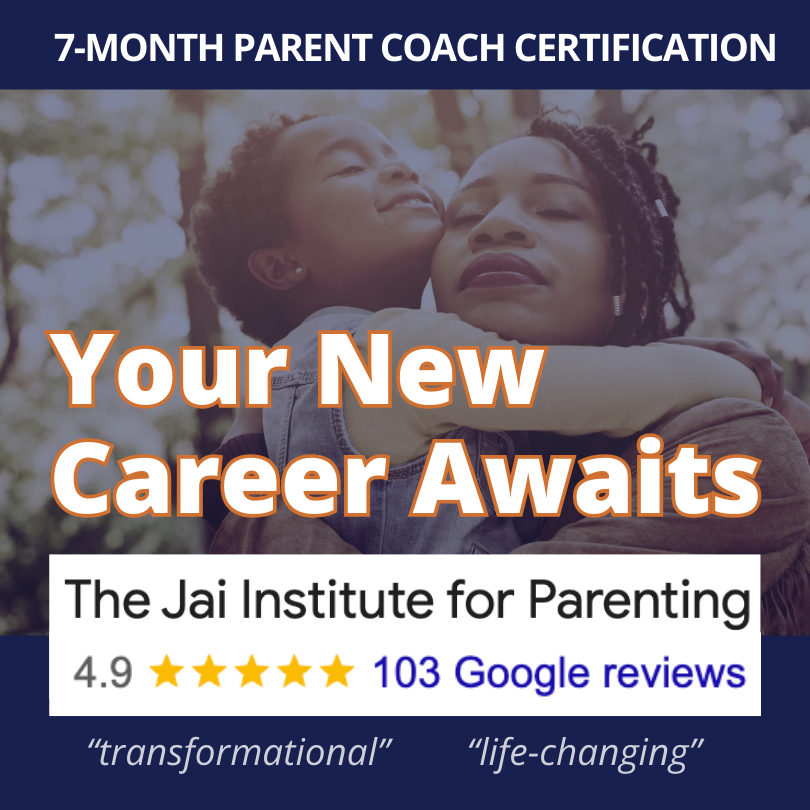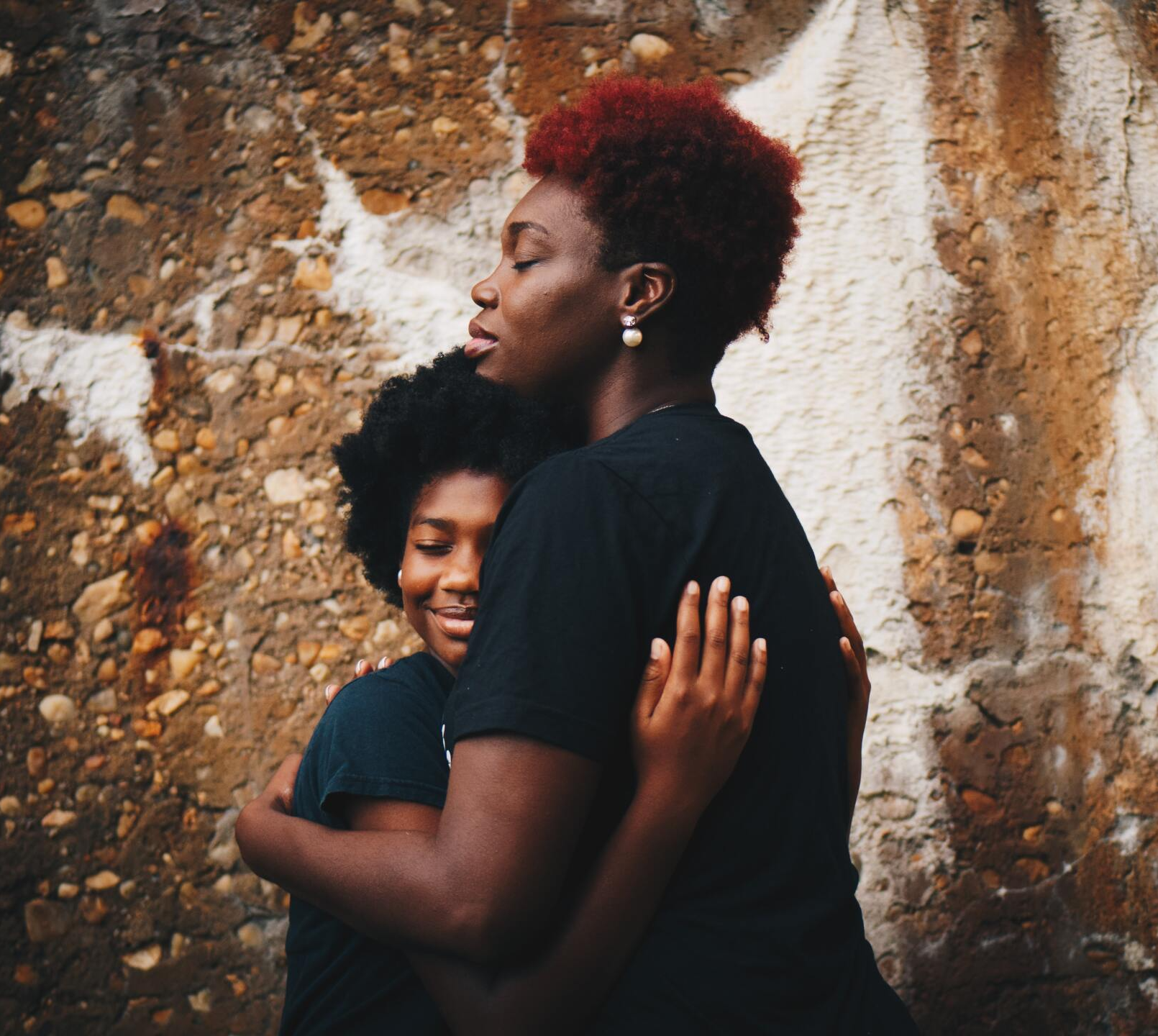Emotional Intelligence Is Foundational to Peaceful Parenting

Emotional Intelligence (EQ) is not just a buzzword; it's a foundational skill set that can dramatically transform both your personal and professional landscapes. It involves an intricate dance of understanding, managing, and navigating your own emotions while also being attuned to and relating with the emotions of those around you.
The path to a higher EQ is paved with self-discovery, empathy, and the mastery of interpersonal dynamics.
So, how do you become an emotionally intelligent parent?
Here’s a deeper dive into five actionable steps anyone can take to build emotional intelligence skills, including self-awareness, compassion, and empathic communication.
1. Dive Deep into Your Emotions
At the core of
emotional intelligence training is self-awareness, which urges us not to label our emotions too quickly as simply “good” or “bad.” Our emotional life is rich with complexity, and we may be harboring feelings we often overlook.
When we become genuinely curious about our emotions, we unlock a more nuanced understanding of ourselves. This exploration allows us to discern, for example, whether we’re experiencing loneliness rather than merely sadness, or isolation instead of abandonment. Such specificity clarifies our emotional state and directs us toward more targeted and effective solutions.
Embracing this level of curiosity transforms emotions from being seen as hurdles to overcome into being valuable indicators that can inform our actions and decisions.
2. Mastering Emotional Self-Regulation and Co-Regulation
Viktor Frankl’s poignant observation about the space between stimulus and response illuminates the essence of emotional self-regulation.
He said, “Between stimulus and response, there is a space. In that space is our power to choose our response. In our response lies our growth and our freedom.” This space is where we have the power to choose to respond rather than react.
Developing the ability to manage our emotional responses, particularly as parents under stressful situations, prevents unnecessary damage to ourselves and our relationship with our children. It’s about finding and creating calm within the storm and choosing actions that contribute to our own growth and liberation, as well as our children’s.
3. Expanding Your Emotional Capacity
Society often teaches us to shy away from negative emotions, and we can unknowingly pass this directive onto our children with the intention of shielding them from experiencing pain.
However, embracing our full emotional spectrum is an incredible skill to model for our children. By feeling our emotions fully, even the hard ones, we can process and move past them more effectively and also open ourselves up to a richer experience of positive emotions.
This practice builds emotional resilience, enhancing our overall capacity for joy, love, and appreciation, which we all want for our children. The key is to allow ourselves to experience each emotion, to sit with it, and to understand its message without judgment or haste. This process of attentive emotional experience is liberating, teaching us (and our children) that we are more than capable of handling the complexities of our emotional world.
4. Communicating with Emotional Fluency
One of the hallmarks of emotional intelligence is the ability to
express our feelings and needs clearly and responsibly. This means owning our emotional experiences, articulating our needs thoughtfully, and guiding our children in how to do the same.
Such communication fosters mutual understanding and empathy, laying the groundwork for stronger, more connected family relationships. By engaging in this open and honest exchange, we minimize misunderstandings and conflicts, making it easier to collaborate on finding solutions that honor everyone's needs.
5. Embracing Curiosity Over Defensiveness
Our instinctive response to threats or criticism is often defensiveness, a stance that usually escalates conflicts rather than resolves them. We open the door to deeper understanding and connection by replacing defensiveness with curiosity and empathy.
This approach encourages us to explore perspectives different from our own, fostering an environment of mutual respect and shared discovery. When we approach interactions with an open heart and mind, we're more likely to find common ground and build relationships based on genuine understanding and care. It’s also a lot less stressful.
Cultivating
emotional intelligence in parenting is an ongoing process of growth and refinement. It challenges us to delve into the complexities of our emotions, to
regulate and express emotions constructively, and to engage with others from a place of empathy and openness. This journey enhances not only our personal well-bEQng and relationships but also our effectiveness and compassion as leaders in our families.
As we commit to developing these skills and teaching them to our children, we realize that the aim is not to achieve some false and elusive state of constant calm. Our goal is to equip ourselves and our children to better navigate life's inevitable ups and downs.
Emotional intelligence offers a path to a more balanced, fulfilling life. It enriches our own experience and also contributes to a kinder, more understanding world. Let’s embrace this path with curiosity, patience, and an eagerness to explore the rich landscape of our emotional lives.
If you’d like to know more about what you can do today to raise secure, confident, and empowered kids... (without compromising your relationship), download our
FREE 12 Myths of Parenting guide here now.
Meet Your Author, Katie Owen
Jai Business Coach & Marketing Mentor
As a former practicing therapist turned copywriter and marketing strategist, Katie is passionate about the intersection of marketing and mindset. Katie embodies the practices of taking the simple actions, consistently over time, that create epic results.
A master storyteller, Katie works with our coaches to refine their message, increase their visibility and get clients!
READ MORE:
Curious for more?














